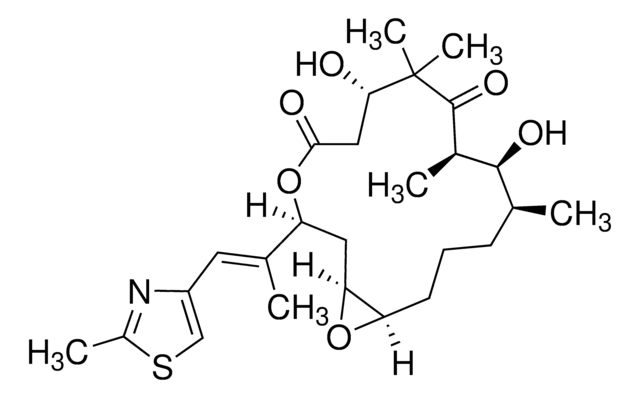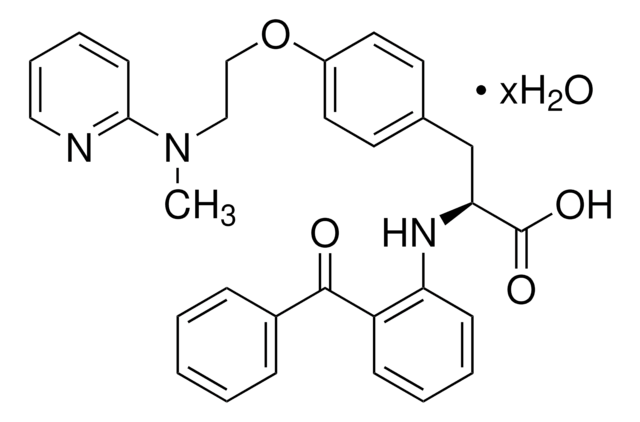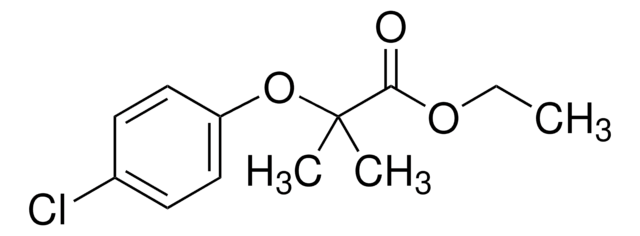G5045
GW6471
≥98% (HPLC), powder, PPARα antagonist
Synonym(s):
N-((2S)-2-(((1Z)-1-Methyl-3-oxo-3-(4-(trifluoromethyl)phenyl)prop-1-enyl)amino)-3-(4-(2-(5-methyl-2-phenyl-1,3-oxazol-4-yl)ethoxy)phenyl)propyl)propanamide
About This Item
Recommended Products
product name
GW6471, ≥98% (HPLC)
Quality Level
assay
≥98% (HPLC)
form
powder
storage condition
desiccated
color
white to beige
solubility
DMSO: 5 mg/mL, clear (warmed)
originator
GlaxoSmithKline
storage temp.
2-8°C
SMILES string
CCC(=O)NC[C@H](Cc1ccc(OCCc2nc(oc2C)-c3ccccc3)cc1)N\C(C)=C/C(=O)c4ccc(cc4)C(F)(F)F
InChI
1S/C35H36F3N3O4/c1-4-33(43)39-22-29(40-23(2)20-32(42)26-12-14-28(15-13-26)35(36,37)38)21-25-10-16-30(17-11-25)44-19-18-31-24(3)45-34(41-31)27-8-6-5-7-9-27/h5-17,20,29,40H,4,18-19,21-22H2,1-3H3,(H,39,43)/b23-20-/t29-/m0/s1
InChI key
TYEFSRMOUXWTDN-DYQICHDWSA-N
General description
Application
- to investigate the role of peroxisome proliferator-activated receptors (PPARs) alpha in perfluorooctanoic acid (PFOA) induced developmental cardiotoxicity
- to abolish the protection of bezafibrate (BZA) against hypertrophy
- to block the enhanced activity of the hepatitis B virus (HBV) core promoter
Biochem/physiol Actions
Features and Benefits
Storage Class
11 - Combustible Solids
wgk_germany
WGK 3
flash_point_f
Not applicable
flash_point_c
Not applicable
ppe
dust mask type N95 (US), Eyeshields, Gloves
Certificates of Analysis (COA)
Search for Certificates of Analysis (COA) by entering the products Lot/Batch Number. Lot and Batch Numbers can be found on a product’s label following the words ‘Lot’ or ‘Batch’.
Already Own This Product?
Find documentation for the products that you have recently purchased in the Document Library.
Customers Also Viewed
Articles
We offer a variety of small molecule research tools, such as transcription factor modulators, inhibitors of chromatin modifying enzymes, and agonists/antagonists for target identification and validation in gene regulation research; a selection of these research tools is shown below.
Our team of scientists has experience in all areas of research including Life Science, Material Science, Chemical Synthesis, Chromatography, Analytical and many others.
Contact Technical Service
















